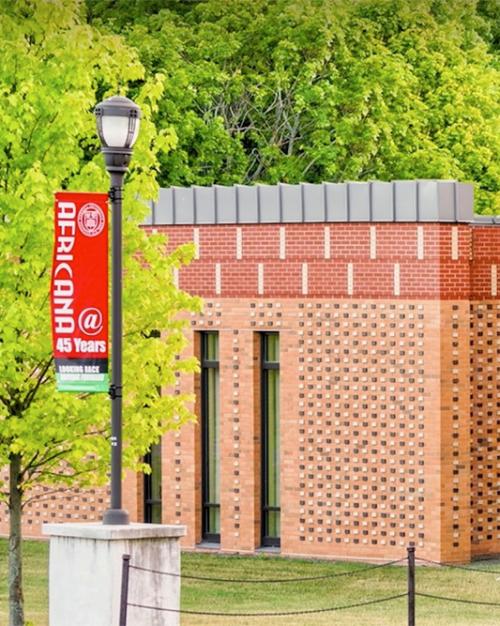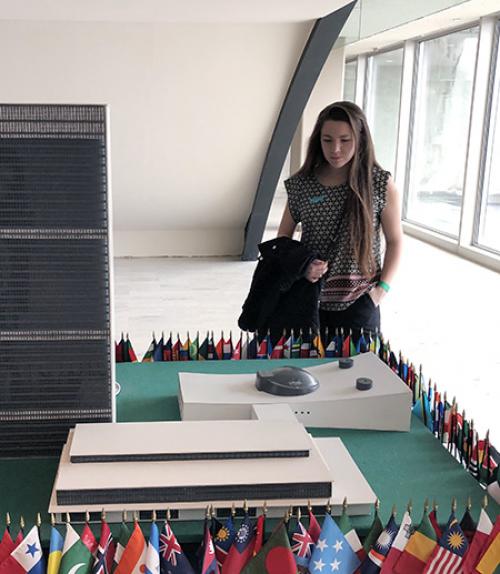UNITED NATIONS, New York City — A diverse group of undergraduates, graduate students, academic fellows and staff from Cornell took a trip to the city last month to tour the United Nations, learn more about disarmament issues and talk about career prospects with the global organization.
“I was able to gain a deeper understanding of what goes on [at the UN],” said Madisen Swallow ’18, about the tour, which included the chance to see meetings of world leaders in progress and focused on the main goals of the United Nations: peace, economic development and sustainability.
Since peace is one of the main foci of the United Nations, students learned about the UN’s efforts in furthering disbarment across the globe. Particularly impactful was a digital display that demonstrated how much money is spent on the military per day, globally.
In the afternoon, students attended a symposium in which Ricardo de Guimarães Pinto and Tina Elise Neuvonen of the United Nations Educational, Scientific and Cultural Organization (UNESCO), answered their questions about the programs and methods that UNESCO uses to bring countries together to find solutions to bridge sustainability and cultural issues — including its 17 Sustainable Development Goals (SDGs).
“I first learned about the SDG’s in my Computational Sustainability class, so it was awesome to connect this trip to my classwork,” said Samantha McIlwrick '18.
Many students asked about how they could get involved in the UN. de GuimarãesPinto urged students interested in a UN career to continue to focus on school and consider earning a master’s degree, which is required for UN positions, even for internships. He said the UN looks for a wide range of different academic disciplines as it makes hiring decisions.
Iris Plessius, a Fulbright Scholar visiting Cornell from the Netherlands, asked what the UN was doing to protect Native American populations in the United States. Many other students voiced concern over how to preserve diversity in an increasingly global world.
This annual trip to the U.N., now in its 14th cycle, was originally created by N’Dri Assié-Lumumba, professor of Africana Studies in the College of Arts & Sciences, while serving as a faculty In residence on West Campus and was organized this year by Assié-Lumumba, who is now a faculty fellow at Ujamaa Residential College and Marcus Scales, residence hall director of Ujamaa, and co-sponsored by several academic units and residential programs across campus.
“It’s purpose is to inspire and provide an opportunity for students to appreciate a diverse and complex world with a shared humanity,” explained Assié-Lumumba.
Anna Carmichael ‘18 is a communications assistant for the College of Arts & Sciences.





